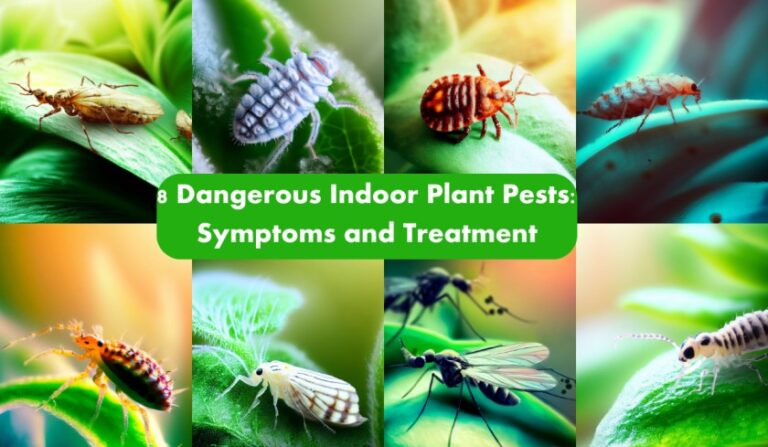Top 18 Best Houseplant Care Tips (2023)
Houseplants are the best plants that makes our home beautiful and charming and we can provide you best houseplant care tips. These houseplants come in different shapes, size, color and habits that makes greenery to our indoor side home. With the better attributes the houseplant makes good our indoor air quality and lush to our homes.

When we talk about the caring of houseplants, its can takes more features like Watering to plant, soil, lighting fertilizer, pruning potting and others more aspects. Houseplants makes life beautiful but the necessary thing is the care of houseplant.
Ensure that they receive the exact amount of light and water and good soil used to grow and also use the best fertilizer for the growth. When we can remove the dust particle from the plant then provide equal temperature and necessary temperature for growth.
So now i told you that fertilizer are needed the growing season, and also take care of the pests from the houseplant.So now By following these care tips, you can enjoy healthy and vibrant houseplants that brighten your home.
Contents
- 1 Choose Healthy Houseplant
- 2 Pick Plants that Work with your Schedule
- 3 Choose the Right Container
- 4 Make Sure Pots have Drainage Holes
- 5 Remove Dust From Plants
- 6 Consider Your Light and Space
- 7 Be Mindful When Watering
- 8 Fertilize The Houseplants Regularly
- 9 Temperature is Best Houseplant Care Tips
- 10 Provide Adequate Humidity
- 11 Propagate Houseplants When Needed
- 12 Complement Your Decor
- 13 Control Houseplant Pests
- 14 Keep Foliage Clean
- 15 Groom, Prune and Repot as Needed
- 16 Check for Houseplant Diseases
- 17 Get them Some Fresh Air
- 18 Move your Plant if need
- 19 The Ultimate Houseplant Care Guide: From Basics to Specialized Tips, Languages, and Timeframes
- 20 Conclusion
- 21 FAQs
Choose Healthy Houseplant
For long-term life, houseplants must be chosen carefully. When purchasing plants, seek for ones with colourful, lush foliage that aren’t withering or discoloured.
Examine the soil; it ought to be damp but not soggy. Look for insects such as spider mites or aphids. In order to avoid overwatering, make sure the pot includes drainage holes. Healthy indoor plants improve air quality and cheer up your home.
Pick Plants that Work with your Schedule
Choose plants that will fit into your schedule and make your gardening activities easier. Choose low-maintenance plants like succulents or snake plants if you don’t have much time.
Automatic watering systems can help with hectic schedules. Making decisions that fit your lifestyle will result in a flourishing garden with less stress.
Choose the Right Container
The right container must be chosen while caring for indoor plants. To avoid overwatering, use containers with drainage holes. Select pots that are the same size as your plant to give it room to flourish.
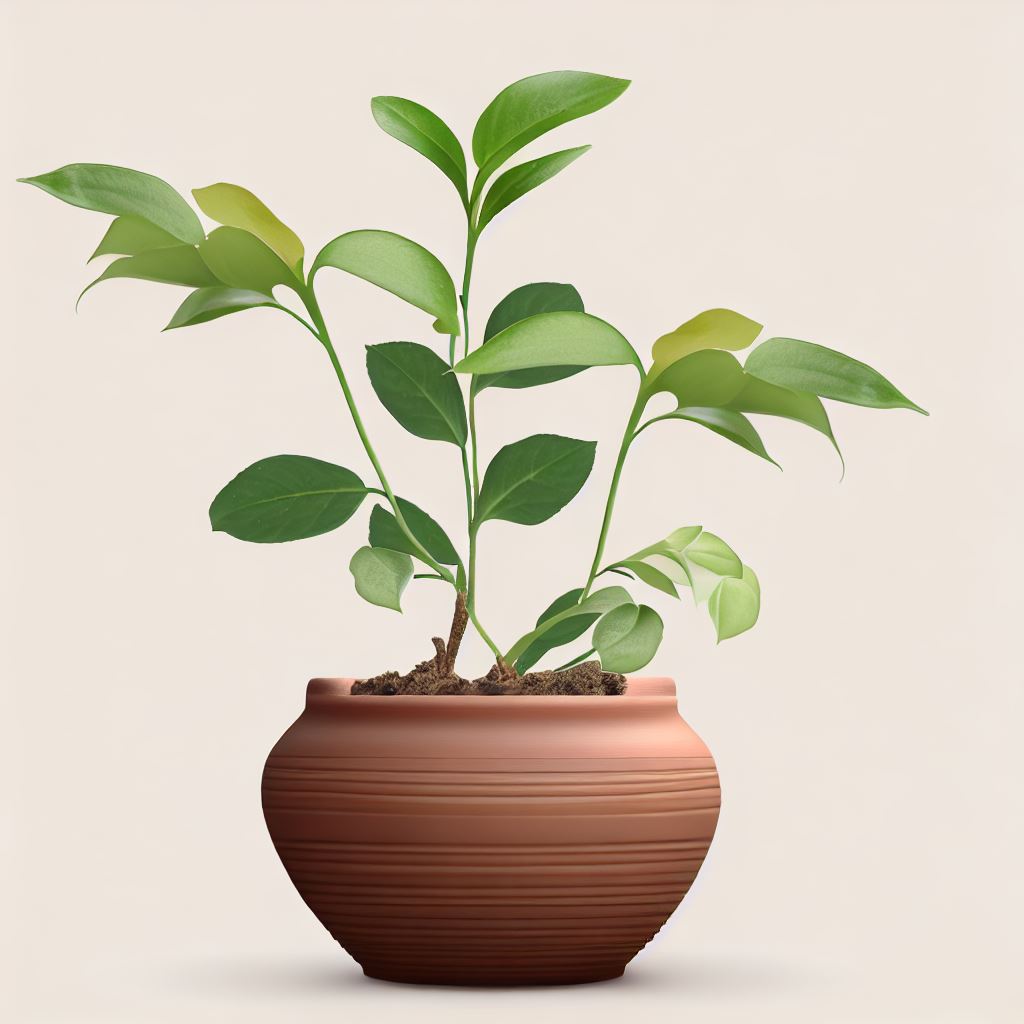
Keep in mind that plants in smaller containers may become root-bound. To encourage the formation of healthy roots, use well-draining soil. Selection of the right containers lays the groundwork for flourishing indoor plants.
Make Sure Pots have Drainage Holes
Prioritise appropriate drainage if you want your houseplants to thrive. To avoid overwatering, make sure your pots contain holes at the bottom.
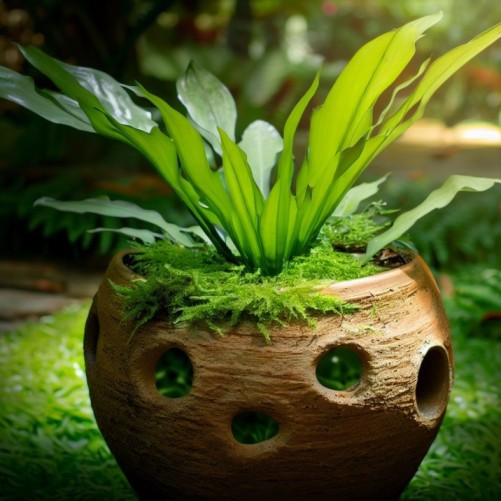
By doing this easy action, extra water may be let out, eliminating root rot and encouraging healthy development. Consider the drainage needs of your plants while choosing containers to ensure their happiness.
Remove Dust From Plants
It’s crucial to frequently dust plants in order to maintain the health of your indoor plants. Photosynthesis can be hampered by dust on leaves that blocks sunlight.

To maintain their cleanliness, simply lightly wipe the leaves with a moist cloth or sponge. Thus, plants may breathe more easily and grow healthier. Keep in mind that a little dusting may go a long way towards keeping your indoor plants happy!
Consider Your Light and Space
Think carefully about your light and space while caring for houseplants. Place shade-loving plants in locations with less light, and sun-loving plants close to sunny windows.
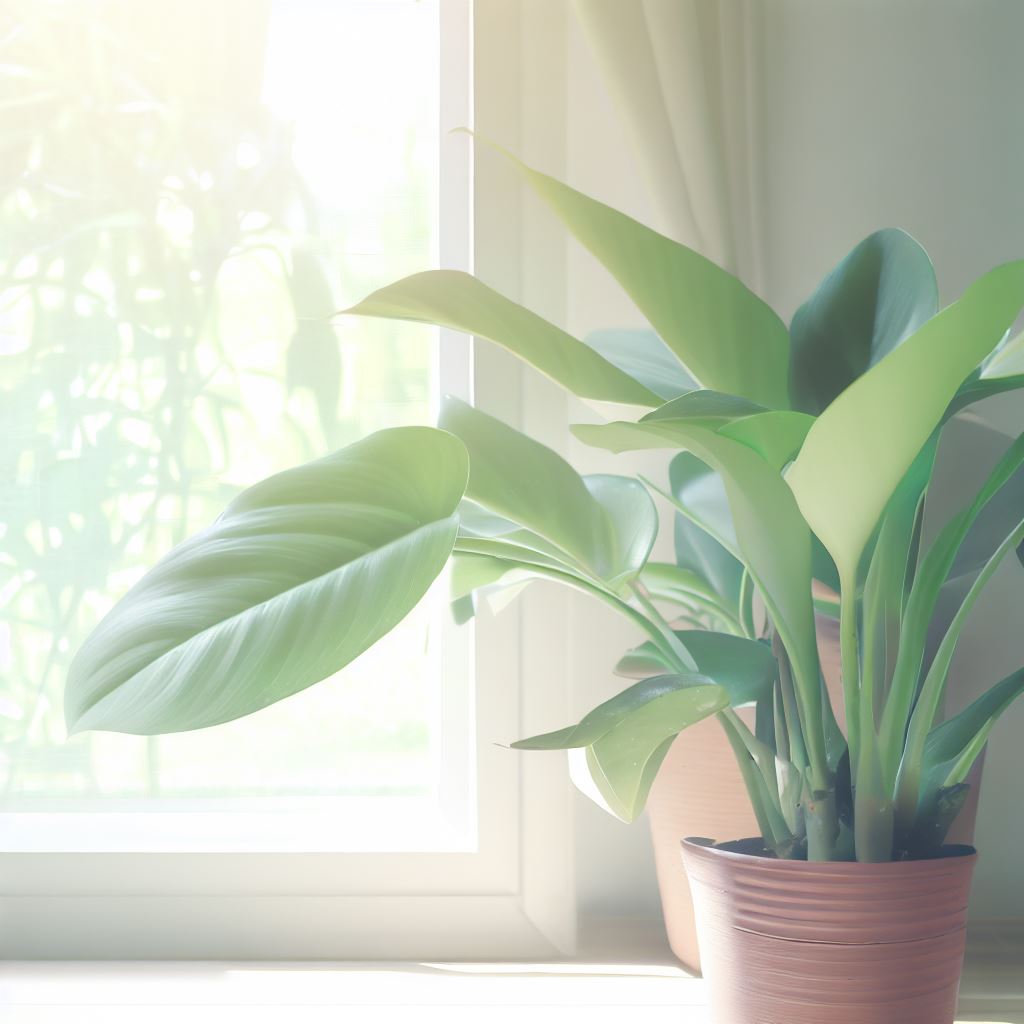
To maintain uniform growth, rotate them. Don’t clutter your area; leave room for expansion. Avoid overwatering and water your plant only as much as it requires. Your indoor garden will thrive if you follow these easy measures.
Be Mindful When Watering
Being careful while watering indoor plants makes taking care of them simple. Before giving them a drink, make sure the earth is dry to a depth of approximately an inch.
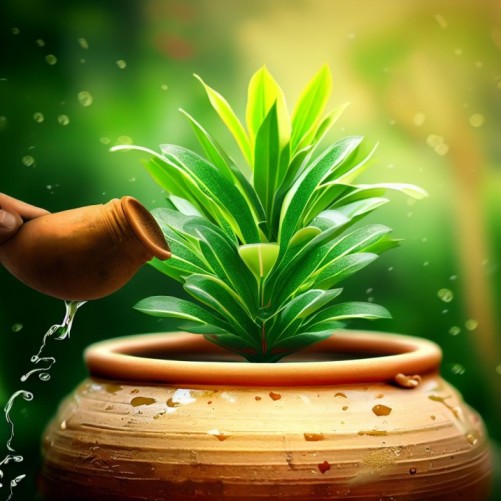
Avoid wet roots since they might be dangerous! To avoid water ponding, use containers with drainage holes.
Do your study on your plant friend’s preferences because various plants have varied demands. Plants that are happy create pleasant homes!
Fertilize The Houseplants Regularly
Remember to fertilize your indoor plants frequently to keep them flourishing. The vital nutrients for development are provided through fertilizing.
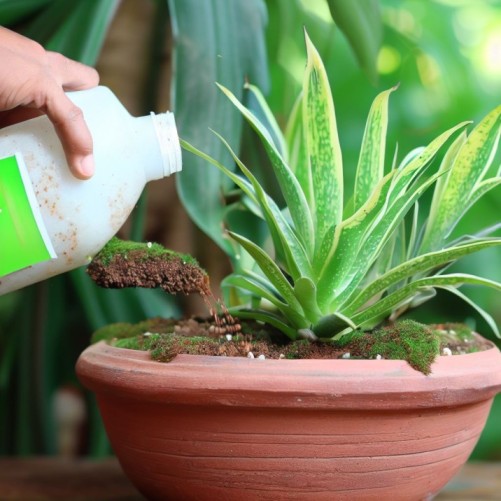
During the growing season (spring and summer), apply a balanced liquid fertilizer every 4-6 weeks, diluted as instructed on the package. Reduce fertilization in the autumn and winter when plants are dormant.
Always follow the directions since over fertilizing might hurt your plants. Wait for happy, healthy houseplants!
Temperature is Best Houseplant Care Tips
Get the temperature exactly right if you want your indoor plants to thrive. The majority of indoor plants enjoy a comfortable room temperature of between 65 and 75 degrees Fahrenheit (18 and 24 degrees Celsius).
Avert very hot or cold places. For precise temperature requirements, check the care label on your plant because certain types may have them. Your green pals will remain content and healthy with regular, temperate temperatures!
Provide Adequate Humidity
Adequate humidity is essential for your houseplants’ survival. By constantly spraying your plants or setting up a tray of water nearby, you may do this.
To boost humidity, you may also put your plants together. Your green friends are content and vibrant because the right amount of humidity maintains their leaves lush and healthy.
Propagate Houseplants When Needed
Remember to propagate your houseplants as necessary to keep them flourishing. This entails propagating new plants from the original.
You can utilise stem cuttings, leaf cuttings, or even seeds as different types of propagation. Inspect the new plant to make sure it is in the proper soil, light, and water conditions. By doing this, you can make sure that your indoor plants remain beautiful and healthy.
Complement Your Decor
Consider their colour and size when choosing houseplants to match your décor. While towering plants like fiddle leaf figs make a focal point, bright, colourful ones like snake plants or pothos bring energy.
Put succulents in fashionable containers. Make sure the area is properly lit and watered; use low-light plants in small, dark areas. For aesthetic purposes, regularly dust leaves and prune.
Control Houseplant Pests
Start by routinely checking your plants for any indications of trouble before attempting to control houseplant pests. Look out for microscopic insects, discoloured leaves, or sticky substance.
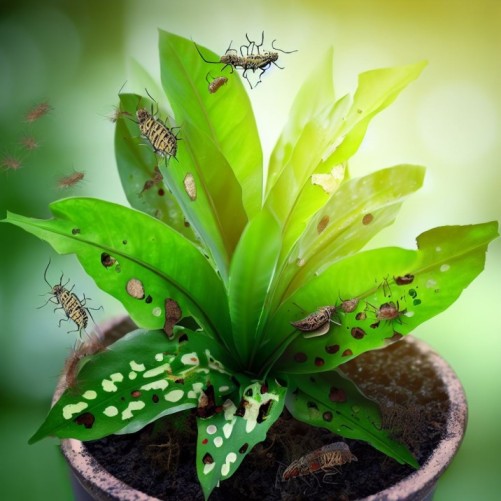
In order to stop pests from spreading, isolate the afflicted plants. To clean leaves and get rid of bugs, use mild soapy water. Neem oil or insecticidal soap are options for difficult infestations.
To keep your indoor green companions healthy and pest-free, keep the area clean and avoid overwatering.
Keep Foliage Clean
Priorities cleaning if you want your houseplants to be healthy. Growth and photosynthesis can be hampered by dust. Use a moist towel to gently clean leaves to eliminate dust and promote airflow for your plant.
Avoid overwatering; wait until the top inch of soil has dried before applying more water. For even growth, place plants in the proper lighting conditions and rotate them occasionally.
With these basic maintenance instructions, healthy houseplants flourish.
Groom, Prune and Repot as Needed
Remember to GROOM, PRUNE, AND REPOT AS NEEDED to maintain the health of your houseplants.
Leaves should be dusted and cleaned to improve photosynthesis. To promote fresh growth, remove any dead or overgrown areas. When roots want more room, repot them.
Use a slightly larger container and new dirt. Indoor vegetation will thrive with regular care!
Check for Houseplant Diseases
Keep an eye out for houseplant illnesses to keep your indoor plants healthy. Examine the leaves for withering, stains, or discoloration.
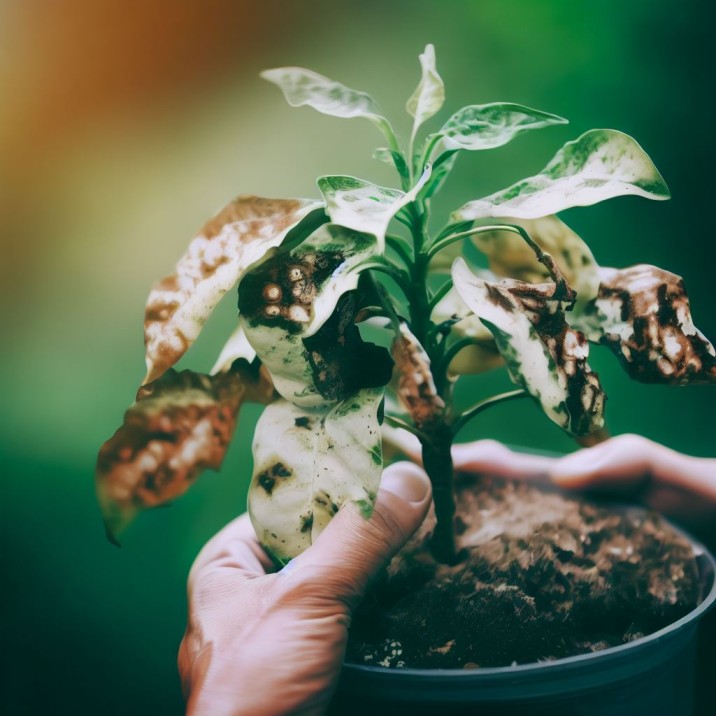
Make careful to water properly; underwatering results in dryness, while overwatering might cause root rot. In order to allow for optimal breathing, dust departs often.
To stop the spread of illness, isolate diseased plants. Lighting is essential for healthy plant growth. Your green friends prosper when you exercise simple caution!
Get them Some Fresh Air
Don’t forget to give your houseplants some fresh air to keep them healthy. Like ourselves, plants require oxygen to survive. To promote airflow, sometimes open a window or door.
Avoid overwatering; test the soil’s dryness with your finger before applying water. Last but not least, remember to lightly dust their leaves so they may breathe easier.
Move your Plant if need
Pay attention to where your houseplants are located to keep them healthy. Move a plant to a different location if it appears uncomfortable.
Make sure they receive the proper level of light neither too much nor too little. When the top inch of soil seems dry, water the plants. To avoid overwatering, don’t forget to ensure enough drainage.
Last but not least, keep an eye out for pests and deal with them right away. Simple changes can have a huge impact on the health of your plant.
The Ultimate Houseplant Care Guide: From Basics to Specialized Tips, Languages, and Timeframes
For beginners eager to nurture their indoor greenery, a house plant care guidebook is a valuable starting point. This comprehensive resource covers everything from the fundamental “how to take care of a plant” basics to advanced “houseplant care tips and tricks.
” Whether you’re seeking specific instructions, such as “coffee houseplant care tips” or advice for “indoor plant care tips in Hindi,” this guidebook has you covered. It even delves into time-sensitive care, offering insights like “houseplant care-tips for January” and “houseplant care tips for March,” ensuring your green friends thrive in every season.
With care strategies that encompass the entire year, this guidebook is your passport to optimal plant care in 2023 and beyond, bridging language gaps with translations like “houseplant traduction” and “houseplant care tips en francais,” and addressing specific plant needs, including “peace lily houseplant care tips,” “z plants in Hyères,” and “silence ca pousse hortensia.”
Whether you’re navigating a houseplant care journey in the UK or tending to extra-large specimens, this guidebook is an indispensable resource for nurturing your indoor oasis.
Conclusion
Finally, maintaining the health and vitality of your indoor plants is a satisfying and doable task. You lay the groundwork for a flourishing indoor garden by carefully choosing healthy plants throughout the buying process, paying attention to soil moisture, and monitoring for pests.
The key to taking good care of plants is to choose ones that fit your schedule, use pots with good drainage, and keep the leaves clean. Regular fertilization and taking into account variables like light, temperature, and humidity also help to their well being.
It is essential to be vigilant in spotting and resolving possible problems, such as infections and pests. Last but not least, remember to give your plants fresh air and make any necessary little modifications.These straightforward yet efficient procedures guarantee that your indoor plant friends remain content and healthy, improving your home and your general well being.
FAQs
Why is it important to choose healthy houseplants?
Choosing wholesome houseplants is essential for their long-term vitality since they improve the quality of the air within your home and add beauty to it.
How can you match your choice of houseplants with your schedule?
If you’re short on time or have a busy schedule, use low-maintenance plants like succulents or snake plants, or use automatic irrigation systems.
Why is proper container selection important when caring for houseplants?
Proper containers that are the right size and have drainage holes encourage healthy root development and minimise overwatering.
Why should pots have drainage holes for houseplants?
Drainage holes in pots stop overwatering, letting extra moisture leave and fostering healthy growth.
How can you remove dust from houseplants?
To eliminate dust from the leaves, which can harm photosynthesis and general health, gently clean them with a moist cloth or sponge.
Why is considering light and space important for houseplants?
Giving plants ample room and positioning them according to their preferred lighting fosters balanced development and reduces overwatering.
How should you approach watering houseplants?
To reduce water accumulation, avoid damp roots, water when the top inch of soil is dry, and use containers with drainage holes.
Why is it important to fertilize houseplants regularly?
Fertilizing supplies vital nutrients for development, but it should be carried out in accordance with the demands and instructions of the plant to prevent overfertilizing.






